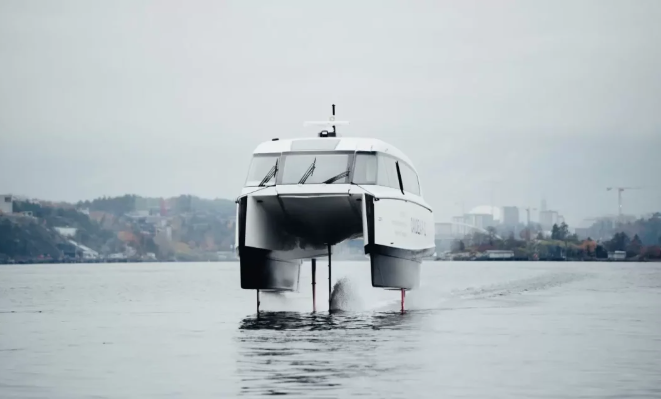Candela’s P-12 All-Electric Passenger Ferry Flies Above the Water

Land routes are becoming ever more congested, with short road trips taking longer than ever before. It’s a real problem that humanity needs to tackle, and according to Candela, a Swedish foiling e-boat maker, the solution is using Earth’s vast water surface. Particularly, the brand’s advanced all-electric passenger ferry called the P-12, which rides above the waves to allow for the most comfortable sailing possible.
Candela’s P-12s are so impressive, that the Saudi government already made a deal with the company to purchase eight of these vessels for its sci-fi Neom City. With these foiling water taxis, the city will provide inhabitants with faster and more efficient water transport. Still, Candela sees the P-12 as part of Stockholm’s public transport system, particularly between the city’s center and the Ekerö island, where it would cut the commuting time from 55 to 25 minutes.
The P-12 is zero-emission, too. Using a 252-kWh battery, the Candela’s shuttle can sail for two hours on a charge, and achieve solid speeds at a speed of 25 knots (29 mph). The catamaran can achieve a top speed of 30 knots (34 mph) when necessary and gets there in only 16 seconds (once it reaches 16 knots). Crucially, according to a lifecycle analysis by KTH Royal Institute of Technology, a P-12 all-electric ferry “will emit 97.5% less CO2 during its lifetime compared to a diesel vessel of the same size.”
All of this is impressive, but we still haven’t explained the party trick. Namely, using two C-Pod electric drive units, the P-12 rides above the waves once it gets to a 16-knots (18.5-mph) velocity. But the more impressive part is that the catamaran can adjust its carbon-fiber wings continuously to stay level.
As a result, according to Candela, the P-12 should provide all 30 passengers with a comfortable ride, even during windy and wavy periods. The catamaran also has a room for bicycles, strollers, wheelchairs, and other items. The starting price of the Candela P-12 is €1.7 million ($1.892 million).

 Tech Steel & Materials
Tech Steel & Materials
Comments are closed